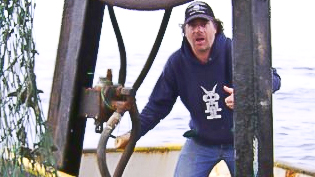In Britain Ed Miliband Prepares For The Wrong Fight

Britain’s Opposition leader, Ed Miliband has emerged from two national crises with flying colours. He may have been a little late coming to the first – the Murdoch hacking scandal – but better late than never. As it was, he managed to sound both authoritative and urgent when turning his fire on the Prime Minister, David Cameron’s astonishing lapse of judgement in appointing News International’s Andy Coulson, to be his press secretary. I mean, can anyone seriously image a US President appointing a former Editor of the New York Post as White House Secretary?
Miliband also struck all of the right notes over the English riots which disfigured neighborhoods and seriously unnerved people across the land. He is continuing to do so, demanding as he is, a National Inquiry into what lay behind them and what to do. He gives the impression of being a serious politician and one who listens, powerful attributes for a jaded electorate more used to spin and little of substance from its political class. It would help if he was a more natural TV performer, but perhaps he gets over that wooden-ness by simply appearing more often in un-staged meetings and interactions with the public.
To an extent then, the real Ed Miliband, through his actions is undoing some of the damage from his extremely unconvincing performance in the run up to the recent day of action by public service workers in protest at the massive cuts being implemented by Cameron’s Coalition. First he tried to play catch up with the predictable onslaught against trades unionists, and then he gave every impression of joining in. But ‘impression’ remains the objective description, for it is difficult to believe that Ed Miliband does share the knee jerk anti unionism of much of the political class. So perhaps he is being poorly advised? That seems the best explanation behind his more recent pronouncements on the trade unions affiliated to the Labour Party, and how they should be allowed to participate in Labour’s policy making procedures – particularly the annual conference.
At this stage, I suspect I will have lost a number of readers, because like Ed I am talking about procedures, when the times in which we live demand bold statements of intent and commitment and real issues. So the first think to say about Ed’s plans to reduce the voting power of trade unions at the conference is that it will immediately bore most people into switching off at any mention of both him or the Labour Party. But having stuck with me thus far, there are other reasons why Ed should desist from picking a fight with the unions – and this is not to say that urgent reform of the party’s policy making process is not needed. It is that Ed seems to think – or has been advised – that his brother David’s frankly weird ‘Movement for Change’ should be able to affiliate to the Labour Party and vote. Why should this be so? And to whose ends will this serve?
There is another reason of course as to why Ed is being given naff advice. Someone forgot to tell him that he may actually lose this fight. The unions are rightly fed up of being everyone’s whipping boy, and are extremely angry that those who apparently enjoy whipping them the most are quite happy to accept their largesse. They formed the Labour Party, and as it’s industrial wing are entitled to 50% of the conference vote. Labour isn’t in government and the unions aren’t as compliant. They may not play ball with Ed. It is as simple as that.





